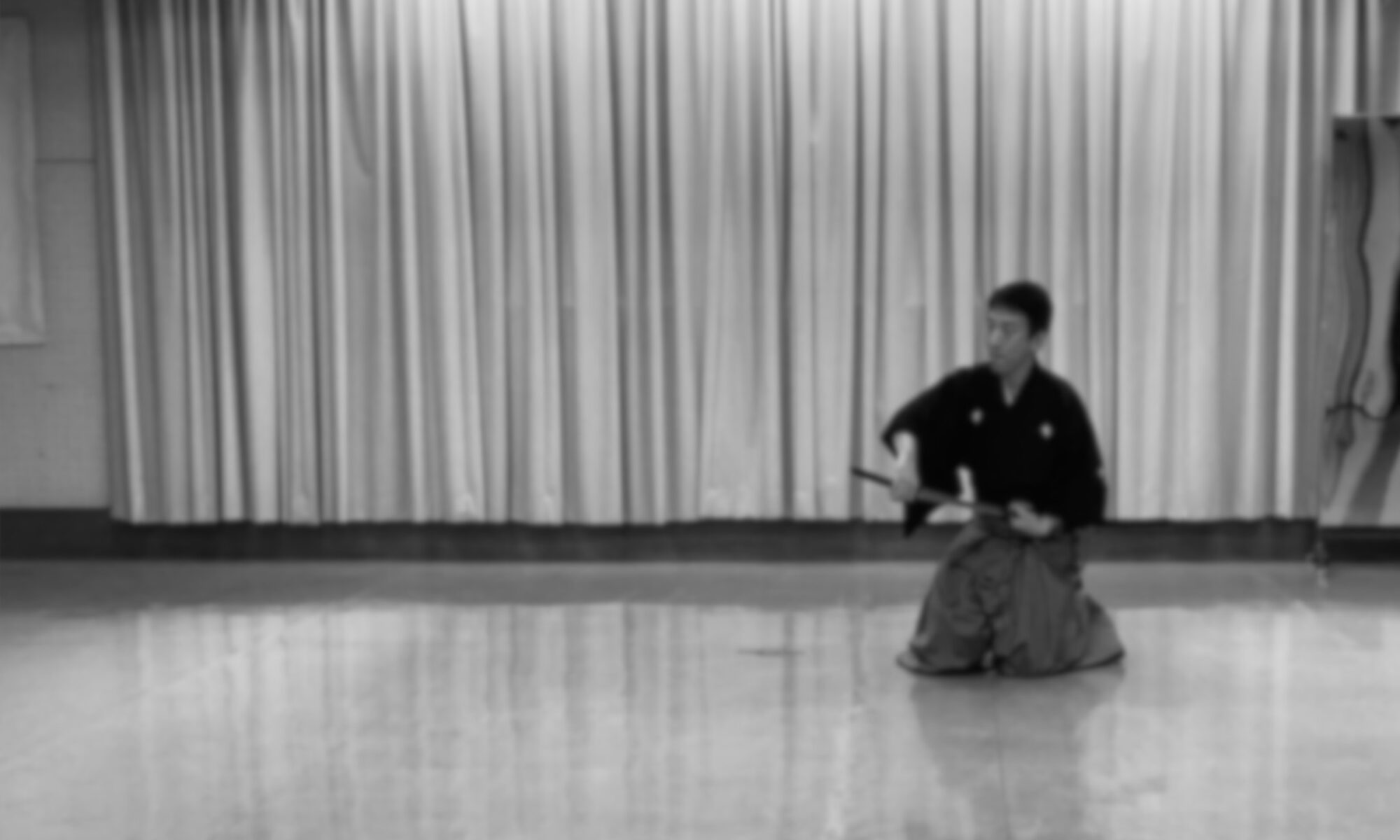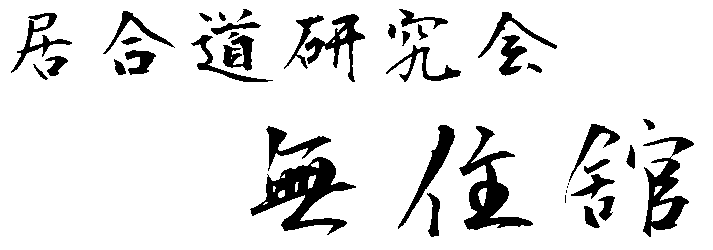全日本剣道連盟における剣道および居合道の昇段審査と指導法の問題点
Ⅰ.はじめに
全日本剣道連盟(以下、全剣連)は、「剣の理法の修練による人間形成」を理念として掲げ、剣道および居合道を通じた人格陶冶を目的としている(全日本剣道連盟, 2017)。
この理念は、武道を単なる競技や技能修得の枠にとどめず、精神的修養を伴う教育的実践として位置づけるものである。
しかしながら、現代の昇段審査制度および指導方法には、理念との乖離が指摘されている。特に、昇段審査の評価基準の曖昧さや審査員制度の不透明さ、さらに一部では暴力・金銭的不祥事などの倫理的問題も報じられており、制度そのものの信頼性が問われている。
本稿では、全剣連における昇段審査および指導制度の現状を整理し、理念的・制度的観点からその問題点を明らかにするとともに、今後の改善に向けた方向性を考察する。
Ⅱ.昇段審査制度の問題点
(1)評価基準の曖昧さと地域差
剣道および居合道の昇段審査は、全日本剣道連盟が定める「剣道称号・段位審査規則および細則」(全日本剣道連盟, 2020)に基づいて実施されている。
同規則に示される評価項目には、「品位」「気迫」「技の冴え」「姿勢」「動作の正確さ」などが挙げられているが、いずれも定性的・抽象的であり、評価の基準が数値化されていない。
実際の審査では、受審者に対して具体的な講評や評価票が返却されず、合格者の受審番号が掲示されるのみである。不合格者にはどの点を改善すべきかといったフィードバックが一切行われないため、審査の透明性が確保されていない。このような仕組みでは、受審者が自己の課題を把握することが難しく、教育的プロセスとしての審査の意義が十分に果たされていない。
さらに、昇段審査の合格率には会場や地域による明確なばらつきが見られる。たとえば全剣連が公表する統計では、同じ段位の審査でも地域によって合格率が数%から十数%異なることがある。こうした差異は、審査員の重視する観点や採点の傾向が地域的に異なる可能性を示唆している。
特に高段位(六段・七段・八段)審査では、「風格」や「気位」「品位」など、明確な動作基準を持たない概念が評価要素として大きく扱われる。これらは「姿勢・気迫・人格」などを総合的に判断するものとされるが、評価者の主観に強く依存するため、客観的基準が不十分である。受審者の間では、「審査員によって評価の傾向が異なる」「どのような演武が求められているのか分かりにくい」といった声も多く、制度の信頼性を損なう一因となっている。
(2)審査員の選任と倫理教育の不十分さ
審査員は都道府県連盟などの推薦によって任命されるが、その選任基準や再教育制度は不明確であり、任期制も実質的に存在しない。
全剣連は「会員倫理要項」(全日本剣道連盟, 2022)において、
「会員は、職務上または地位を利用して、金銭その他の利益を不当に得てはならない」
「段位・称号等の審査、推薦にあたり、金銭的利益の授受その他不適切な行為を行ってはならない」
と明記している。
しかし、こうした倫理規定は理念的宣言にとどまり、審査員の教育的再訓練や倫理講習が制度化されているわけではない。長年にわたって固定化された序列や人間関係が審査に影響する構造が温存されており、審査の公平性・一貫性を損なう要因となっている。
倫理意識を実効的に育成するには、審査員の資格更新制度や定期的な再教育が不可欠である。
(3)居合道における金銭的・制度的課題
居合道における昇段審査では、過去に金銭授受をめぐる不祥事が報じられている。
2018年8月、毎日新聞および日刊スポーツは、「全日本剣道連盟の居合道八段審査において、審査員に現金を渡す事例があった」と報じた(毎日新聞 2018年8月17日;日刊スポーツ 2018年8月17日)。中には「650万円を要求された」との告発もあり、社会的な注目を集めた。
これを受けて全剣連は同年9月19日、「居合道金銭授受報道に関する全剣連の見解」を発表し、2件の不適切な金銭授受が確認されたことを公式に認め、関係者を処分したことを明らかにした(全日本剣道連盟, 2018)。
この声明の中で全剣連は、「昇段審査に関わる金品の授受は厳に慎むべきである」と述べ、再発防止と倫理意識の徹底を求めている。
この事例は、個人の不正というより、制度上の構造的問題を反映している。居合道は古流と全剣連制定居合が併存しており、地方支部や師範が独自に講習会や審査練習を運営するため、金銭の流れが不透明になりやすい。こうした仕組みの中で、受審者が「特定の師範に学ばなければ合格しにくい」といった認識が生まれ、倫理的・経済的な従属関係が形成される危険がある。
全剣連が2022年の「会員倫理要項」で金銭授受の禁止を明文化した背景には、このような構造的リスクへの危機意識があると考えられる。
(4)暴力・権威主義的文化の影響
剣道界では、「厳しさ」や「精神鍛錬」を掲げる風土を利用して、暴言・体罰・権威的指導が見過ごされがちである。これに対し、全剣連は2018年に「暴力根絶に向けて(声明)」を発表し、武道としての倫理と人権尊重を強く訴えた(全日本剣道連盟, 2018)。
とはいえ、現場では未だに複数の実例が後を絶たない。兵庫県では、剣道部顧問の高校教諭が部員に竹刀でたたき、「殺すぞ」などの暴言を用いたとして、停職1か月の懲戒処分を受けた事例が報じられている(神戸新聞, 2022)。また、埼玉県の剣道部監督は、稽古中に部員の顔を手でたたき、さらに複数回にわたり暴行行為を行ったとして逮捕された(さいたま新聞, 2022)。さらに、福岡の高校剣道部では、顧問による暴言・突き行為があったと報じられ、それを理由に一人の女子部員が自ら命を絶ったという悲劇も報じられている(FN N プライム, 2023)。
こうした事例は、剣道の教育理念と実践現場の間に深い齟齬が残存していることを強く示す。昇段制度を通じて形成される上下構造や、尊敬すべき師範・称号者への無批判な従属関係は、指導者でも異議を唱えにくい文化を助長しうる。
したがって、制度改革においては、暴力・ハラスメント禁止のルール整備や通報制度、被害救済の仕組みを併せ持つことが不可欠である。
Ⅲ.指導法における課題
全剣連の理念では、剣道および居合道は人間形成を目的とする教育体系である。しかし、実際の指導現場では、技術的成果や昇段実績が指導者の評価や発言力を左右する主要な要素となっており、教育的理念が形骸化する傾向がみられる。
たとえば、地方連盟や道場では、指導者の昇段・称号取得が講習会や審査会での発言権や役職選出に影響する構造がある。結果として、教育的力量よりも段位・称号の高さが権威として機能し、「教育力」より「段位の高さ」が重視される風潮が生まれている。
また、全剣連主催の指導者講習会では、技術講習や形(かた)の実演が中心であり、教育心理・発達理解・ハラスメント防止といった教育的・倫理的指導力を養う内容が十分に含まれていない。特に学校現場や地域道場で指導する若手教員・指導者にとって、実践的な教育支援の学び場が限られていることは深刻な課題である。
このような構造のもとでは、指導者が生徒や門下生の個性・学習段階に応じた柔軟な指導を行うよりも、審査合格を目的とした「型の再現性」「動作の精度」など、外形的成果を追求する指導に傾きやすい。結果として、教育理念としての「人間形成」は理念として掲げられながらも、指導現場で十分に体現されていない。
Ⅳ.総括と展望
全剣連の掲げる理念は、人格形成としての武道教育を目指すものである。しかし、昇段審査制度や指導体系は依然として旧来の慣習的構造に依存しており、理念が制度として十分に支えられていない。
暴力や金銭的不正の発生は、個人の問題ではなく、制度の閉鎖性と透明性の欠如に根ざした構造的課題と見るべきである。
今後求められる改革としては、
1. 審査基準の具体化と可視化、
2. 審査員および指導者に対する継続的な倫理研修制度、
3. 審査結果のフィードバック制度の整備、
4. 外部監査や第三者評価の導入による透明性確保、
が挙げられる。
これらの取り組みを通じて初めて、「剣の理法の修練による人間形成」という理念が形式的スローガンではなく、実効的な教育実践として息づくことが期待される。
参考文献
全日本剣道連盟(2017)『剣道の理念』全日本剣道連盟.
全日本剣道連盟(2018)『暴力根絶に向けて(声明)』全日本剣道連盟.
全日本剣道連盟(2020)『剣道称号・段位審査規則および細則』全日本剣道連盟.
全日本剣道連盟(2022)『会員倫理要項』全日本剣道連盟.
神戸新聞(2022年2月22日)『剣道部顧問が部員に暴言・体罰、停職1か月の懲戒処分』.
さいたま新聞(2022年8月26日)『剣道部監督が稽古中に暴行容疑で逮捕』.
FN N プライム(2023年1月)『高校剣道部顧問の暴力・暴言で女子部員が自殺』.
Problems in the Promotion Examinations and Instructional Methods of Kendo and Iaidounder the All Japan Kendo Federation
I. Introduction
The All Japan Kendo Federation (hereinafter AJKF) upholds the philosophy of “the cultivation of human character through the discipline of the sword.” This philosophy situates Kendo and Iaido not merely as competitive or technical activities but as educational practices aimed at moral and mental refinement (All Japan Kendo Federation, 2017).
However, modern promotion examination systems and instructional methods have been criticized for deviating from these ideals. Ambiguities in evaluation criteria, the lack of transparency in examiner appointments, and ethical scandals̶including cases of violence and monetary misconduct̶have raised concerns regarding the credibility of the examination system.
This paper examines the current state of the AJKFʼs promotion and instructional systems,identifies issues from both philosophical and systemic perspectives, and considers possible directions for future improvement.
II. Problems in the Promotion Examination System
(1) Ambiguity of Evaluation Criteria and Regional Disparities Promotion examinations for Kendo and Iaido are conducted in accordance with the
“Regulations and Detailed Rules for the Examination of Kendo Titles and Dan Ranks” (All Japan Kendo Federation, 2020). The criteria listed̶such as “dignity,” “spirit,” “refinement
of technique,” “posture,” and “accuracy of movement”̶are qualitative and abstract, lacking standardized or quantifiable measures.
In practice, no written evaluations or feedback are provided to examinees; only the examineeʼs numbers of successful applicants are publicly posted. As unsuccessful candidates receive no explanation regarding the reasons for failure, the process lacks transparency and fails to serve as a formative educational assessment.
Furthermore, pass rates differ considerably across examination venues and regions.
According to AJKF data, pass rates for the same Dan rank can vary by several to more than ten percentage points between regions, suggesting regional disparities in evaluative emphasis and examiner judgment.
In high-level examinations (6th, 7th, and 8th Dan), evaluative terms such as “spiritual presence,” “dignity,” and “pride” are heavily emphasized . While these measures are intended to evaluate, in a holistic manner, aspects such as posture, spirit, and character , they lack operational definitions and rely heavily on subjective interpretation. Examinees frequently express confusion, noting that “evaluation tendencies differ among examiners” and “it is unclear what kind of performance is expected,” which has become one of the factors undermining the credibility of the system.
(2) Examiner Appointment and Insufficient Ethical Education
Examiners are appointed based on recommendations from prefectural federations and other related organizations. However, the standards for selection, reappointment, and retraining are unclear, and no system of term limits is in place.The AJKFʼs “Code of Ethics for Members” (All Japan Kendo Federation, 2022) stipulates that:“Members shall not obtain unjust profits by exploiting their position,” and “Members shall not engage in monetary transactions or other inappropriate acts in relation to examinations or recommendations for titles and Dan ranks.”
Although these ethical guidelines remain largely declarative, and there is no
institutionalized system for examiner re-education or ethical training. Long-standing hierarchies and interpersonal relationships continue to influence the examination process,
thereby compromising its fairness and consistency. A formalized system of examiner recertification and continuous ethical training is required to effectively cultivate examinersʼ ethical awareness.
(3) Financial and Structural Problems in Iaido Promotion Examinations
In the promotion examinations of Iaido, there have been past scandals reported involving the exchange of money.
In 2018, both the Mainichi Shimbun and Nikkan Sports reported cases of monetary exchanges in the AJKFʼs Iaido 8th Dan examination, with one examinee alleging that an examiner demanded 6.5 million yen (Mainichi Shimbun, August 17, 2018; Nikkan Sports,August 17, 2018).
In response, the AJKF released an official statement titled “AJKFʼs View on Reports of Monetary Exchange in Iaido Examinations” (All Japan Kendo Federation, 2018), confirming two cases of inappropriate monetary transactions and announcing disciplinary action. In the statement, the AJKF explicitly declared that “the exchange of money or gifts in connection with promotion examinations must be strictly refrained from,” calling for the prevention of recurrence and the thorough reinforcement of ethical awareness.
This case illustrates not only individual misconduct but also systemic structural
vulnerabilities. Since Iaido encompasses both koryū (classical styles) and the AJKF- standardized form, many local branches and instructors conduct independent preparatory seminars and training sessions. This decentralization often leads to opaque financial flows and dependency relationships between examinees and instructors.
The AJKFʼs 2022 Code of Ethics formally prohibited such practices, reflecting awareness of these structural risks.
(4) Influence of Violence and Authoritarian Culture
In Kendo culture, the ideals of “strictness” and “discipline” are often invoked in ways that allow verbal abuse, corporal punishment, and authoritarian instruction to be overlooked.
In response, the AJKF issued the statement titled “Toward the Eradication of Violence” (All Japan Kendo Federation, 2018), strongly advocating ethics as a martial art and the respect for human rights.
Nevertheless, numerous incidents continue to be reported in the educational and training settings. In 2022, a high school Kendo coach in Hyogo Prefecture was suspended for one month after striking students with a bamboo sword and shouting violent language such as “Iʼll kill you” (Kobe Shimbun, February 22, 2022). In the same year, a Kendo instructor in Saitama Prefecture was arrested for repeatedly slapping a student during training (Saitama Shimbun, August 26, 2022) . In 2023, an even more tragic case was reported in Fukuoka, where a female high school student died by suicide following verbal and physical abuse,
including thrusting actions by her Kendo coach (FNN Prime, January 2023).
These incidents reveal a persistent contradiction between the educational ideals of Kendo and the actual instructional culture. Hierarchical relationships reinforced by the rank system and the reverence for senior instructors discourage students or even younger instructors from voicing objections.
Structural reform̶such as mandatory anti-harassment policies, anonymous reporting mechanisms, and victim support systems̶is essential to prevent further misconduct.
III. Issues in Instructional Methods
The AJKF defines Kendo and Iaido as systems of human education. However, in practice,technical achievement and promotion results often determine an instructorʼs authority and reputation, while educational ideals become secondary.
For example, within regional federations and dojos, instructorsʼ Dan ranks and obtained titles significantly influence their authority in seminars or examination board. As a result, rank-based authority is often valued more than pedagogical competence Furthermore, AJKF-sponsored instructor seminars primarily focus on technical demonstrations and kata, whereas topics such as educational psychology, developmental understanding, and harassment prevention are rarely emphasized. As a result, there is a lack of content that fosters educational and ethical teaching abilities. This shortage of practical learning opportunities in educational support is a serious issue, especially for young teachers and instructors teaching in schools or community dojos.
Consequently, instruction tends to prioritize external performance̶such as the accuracy of movement or conformity to kata̶over personalized guidance and moral development.
Thus, the educational ideal of “human character formation” remains a formal principle rather than a living educational practice.
IV. Conclusion and Future Prospects The AJKFʼs philosophy aspires to moral education through martial discipline. However, the current promotion and instructional systems remain bound by traditional structures that undermine these ideals.
Cases of violence and monetary misconduct are not just personal incidents but symptoms of deeper structural issues̶chiefly, the lack of openness and transparency within the system.
Future reforms should aim to:
1. Clarify and standardize evaluation criteria;
2. Implement continuous ethical training for examiners and instructors;
3. Establish a feedback system for examinees; and
4. Introduce external audits and third-party evaluations to ensure transparency.
Through these reforms, the principle of “cultivating human character through the discipline of the sword” can be restored as a genuine and practical educational philosophy.
References
• All Japan Kendo Federation. (2017). The Concept of Kendo. All Japan Kendo Federation.
• All Japan Kendo Federation. (2018). Toward the Eradication of Violence (Statement). All Japan Kendo Federation.
• All Japan Kendo Federation. (2020). Regulations and Detailed Rules for the Examination of Kendo Titles and Dan Ranks. All Japan Kendo Federation.
• All Japan Kendo Federation. (2022). Code of Ethics for Members. All Japan Kendo Federation.
• Kobe Shimbun. (February 22, 2022). High school Kendo coach punished for striking students and using violent language.
• Saitama Shimbun. (August 26, 2022). Kendo instructor arrested for assaulting student during practice.
• FNN Prime. (January 2023). High school Kendo coachʼs verbal and physical abuse leads to student suicide.

